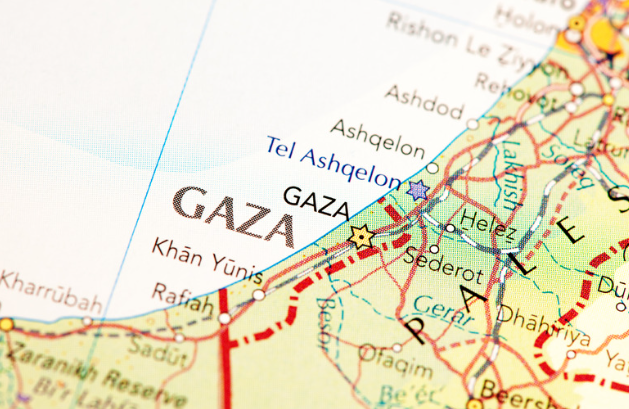

Regulations and Policy Decisions Shape Gaza’s Future Amid Controversial Proposal
The future of Gaza remains uncertain as political leaders propose new regulations and restrictions on the region. Former U.S. President Donald Trump has suggested a policy that would prevent Palestinians from returning to Gaza.
This proposal has sparked debates over international law, human rights, and regional stability. Governments and organizations are assessing the potential impact of such a measure. The regulation of movement and resettlement in conflict zones continues to be a major global issue.
International law plays a significant role in shaping policies related to displacement and resettlement. Legal frameworks exist to protect the rights of displaced individuals and ensure humanitarian assistance. Any proposal to restrict the return of Palestinians to Gaza would require legal justification.
Human rights organizations argue that such policies could violate international agreements. Governments must consider both security concerns and legal obligations when developing regulations. The regulation of borders and movement in Gaza has long been a contested issue.
Israel, Egypt, and the Palestinian Authority each have different policies regarding entry and exit from the region. Any new restrictions would add another layer of complexity to an already fragile situation. International organizations monitor border regulations to ensure they align with human rights standards.
Changes in these regulations could affect thousands of displaced individuals. The economic impact of restricting Palestinian return to Gaza is also a major consideration. Many displaced individuals have lost homes, businesses, and employment opportunities due to ongoing conflict.
Preventing their return could further disrupt Gaza’s economy and create long-term instability. International aid organizations may need to adjust their policies to address the needs of those affected. Regulatory decisions will determine how economic recovery efforts proceed in the region.
Security concerns are a driving factor in discussions about movement regulations. Some policymakers argue that limiting return to Gaza is necessary for stability and security. Others believe that restricting movement could lead to increased tensions and prolong conflict.
Security policies must balance the protection of populations with the rights of displaced individuals. The regulation of borders and settlements remains a key issue in peace negotiations. Global reactions to the proposed restrictions vary.
Some governments support stronger regulations on movement in conflict zones, while others oppose such measures. Humanitarian organizations continue to advocate for the rights of displaced individuals. Diplomatic efforts are underway to find solutions that comply with international law.
The debate over border regulations will continue to shape global policy discussions. The role of the United States in shaping Gaza’s future is another key factor. U.S. foreign policy decisions influence international responses to conflicts and humanitarian issues.
Regulatory measures proposed by American leaders can impact negotiations and diplomatic relations. U.S. lawmakers must consider the long-term effects of policies restricting movement in Gaza. Future administrations may take different approaches to these regulations.
Historical context is essential in understanding current regulatory proposals. Previous policies on Palestinian displacement have faced legal challenges and international scrutiny. The enforcement of regulations in conflict zones has led to both political disputes and humanitarian crises.
Lessons from past conflicts highlight the importance of balancing security with human rights. Any new regulations must consider historical precedents and legal frameworks. The humanitarian impact of displacement regulations cannot be overlooked.
Thousands of families have been affected by conflict in Gaza and are seeking stability. Restrictive policies could hinder humanitarian aid efforts and resettlement programs. International organizations work to provide assistance despite regulatory challenges.
Decisions on movement restrictions will shape the future of displaced communities. Future regulatory decisions will determine the outcome of the current debate. Political leaders, legal experts, and humanitarian organizations will continue to assess policy implications.
The enforcement of movement regulations will affect regional stability and diplomatic relations. Ongoing discussions will shape the legal and humanitarian response to displacement issues. The future of Gaza remains uncertain as regulations and policies continue to evolve.






























